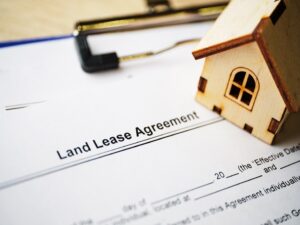Personal injury claims are legal actions pursued by individuals who have suffered harm due to the negligent, reckless, or intentional actions of another person, company, or entity. In Thailand, personal injury law is primarily governed by the Civil and Commercial Code, with some criminal law applications in more serious cases. While the Thai legal system differs in many ways from Western systems, it offers a structured process for victims to seek compensation.
This article explores the most common types of personal injury claims in Thailand, the legal basis for filing these claims, and important procedural and cultural considerations for individuals seeking redress.
Legal Basis for Personal Injury Claims in Thailand
Thailand’s Civil and Commercial Code outlines the general principles of liability for wrongful acts (known as tort law). According to Section 420:
“A person who, willfully or negligently, unlawfully injures the life, body, health, liberty, property, or rights of another person is said to have committed a wrongful act and is bound to compensate the injured person.”
This foundational rule applies to most personal injury cases. Additionally, criminal law may come into play if the injury results from a crime, such as assault or reckless driving.
Damages may include:
-
Medical expenses
-
Loss of income
-
Compensation for pain and suffering
-
Property damage
-
Funeral costs (in wrongful death cases)
Road Traffic Accidents
Road traffic accidents are the most common cause of personal injury claims in Thailand. The country has one of the highest traffic fatality rates in the world. Claims can be made when someone is injured due to:
-
Reckless or negligent driving
-
Drunk driving
-
Motorcycle accidents involving lack of helmet use
-
Unlicensed or underage drivers
Victims may file claims against drivers, car owners, or insurance companies. Thailand requires vehicles to have Compulsory Motor Insurance (Por Ror Bor), which provides basic medical compensation, and most drivers also carry voluntary insurance.
Victims can pursue civil claims for compensation, and in cases of gross negligence or DUI, the offender may also face criminal charges.
Medical Malpractice
Medical malpractice occurs when a healthcare provider fails to meet the standard of care, resulting in patient harm. This includes:
-
Misdiagnosis or delayed diagnosis
-
Surgical errors
-
Improper medication or dosage
-
Failure to obtain informed consent
In Thailand, medical malpractice cases may be handled through civil lawsuits or by filing a complaint with the Medical Council of Thailand, which can take disciplinary action.
While compensation is possible through civil courts, malpractice cases can be challenging to prove and often require expert testimony. Emotional damages, while less recognized than in Western systems, can still be claimed depending on the case.
Workplace Injuries
Employees injured at work are generally covered by Thailand’s Workmen’s Compensation Fund, which provides compensation for medical expenses, lost wages, and rehabilitation. Employers are required by law to contribute to this fund.
However, in cases of employer negligence—such as failure to provide safety equipment, unsafe working conditions, or lack of proper training—an injured worker may pursue a civil lawsuit for additional compensation beyond the fund’s coverage.
Common workplace injury claims include:
-
Construction accidents
-
Industrial equipment malfunction
-
Chemical exposure
-
Repetitive strain injuries
Migrant workers in Thailand are also covered by labor laws and may file injury claims, although enforcement can vary.
Slip and Fall Accidents (Premises Liability)
Premises liability refers to a property owner’s responsibility to ensure their premises are safe. Slip and fall accidents in Thailand may occur in:
-
Shopping malls and supermarkets
-
Hotels and resorts
-
Restaurants and cafes
-
Public sidewalks or transport terminals
If a person slips, trips, or falls due to poor maintenance (e.g., wet floors, broken stairs, inadequate lighting), they may file a personal injury claim against the property owner or management company. To succeed, the claimant must prove that the property owner knew or should have known about the hazard and failed to address it.
Defective Products
If a consumer is injured by a defective or dangerous product, they can file a personal injury claim under Thailand’s Product Liability Act B.E. 2551 (2008). This law holds manufacturers, importers, and sellers strictly liable for harm caused by their products.
Claims may involve:
-
Contaminated food or beverages
-
Faulty electronics or appliances
-
Dangerous toys or children’s products
-
Cosmetic or pharmaceutical side effects
Product liability claims in Thailand do not require proof of negligence—only that the product was defective and caused harm.
Assault and Battery
Injuries caused by intentional acts, such as physical assault, are both criminal and civil matters. Victims can file a police report and also sue the perpetrator for compensation.
Examples include:
-
Bar or nightclub fights
-
Domestic violence
-
Assault by security personnel
In some cases, if the injury occurs on commercial property, the business may be held partially liable for failing to maintain a safe environment.
Dog Bites and Animal Attacks
Owners of pets or domestic animals are liable for damages caused by their animals under Thai law. If a person is bitten or injured by a dog or other animal, the owner may be required to pay compensation.
Claims must demonstrate:
-
Ownership of the animal
-
Lack of reasonable restraint or control
-
Physical or psychological harm suffered
Animal attack cases often occur in residential neighborhoods or near tourist attractions with free-roaming dogs.
Wrongful Death
If a person dies due to someone else’s negligence or intentional act, their family members (typically spouses, children, or parents) can file a wrongful death claim. Compensation may cover:
-
Funeral expenses
-
Loss of financial support
-
Emotional distress
Wrongful death cases may stem from traffic accidents, medical malpractice, workplace injuries, or violent acts.
Cultural and Procedural Considerations
While Thailand has a robust legal system, personal injury claims can be complicated by cultural norms and bureaucratic delays. Key points to consider:
-
Legal representation: Hiring a Thai lawyer familiar with personal injury law is strongly recommended.
-
Out-of-court settlements: Many claims are resolved through negotiation and settlement rather than formal court proceedings.
-
Time limits: Most personal injury claims must be filed within one year of the injury, though this can vary by case type.
-
Language barrier: Official proceedings are conducted in Thai, so non-Thai speakers should ensure they have qualified translators or legal counsel.
Conclusion
Thailand offers multiple avenues for pursuing personal injury claims, whether the harm results from a road accident, medical negligence, unsafe premises, or other forms of misconduct. While legal remedies are available, claimants often face challenges in evidence gathering, court procedures, and proving liability. Understanding the types of personal injury claims and the relevant legal processes can help injured parties navigate the Thai legal system more effectively and seek the justice they deserve.






